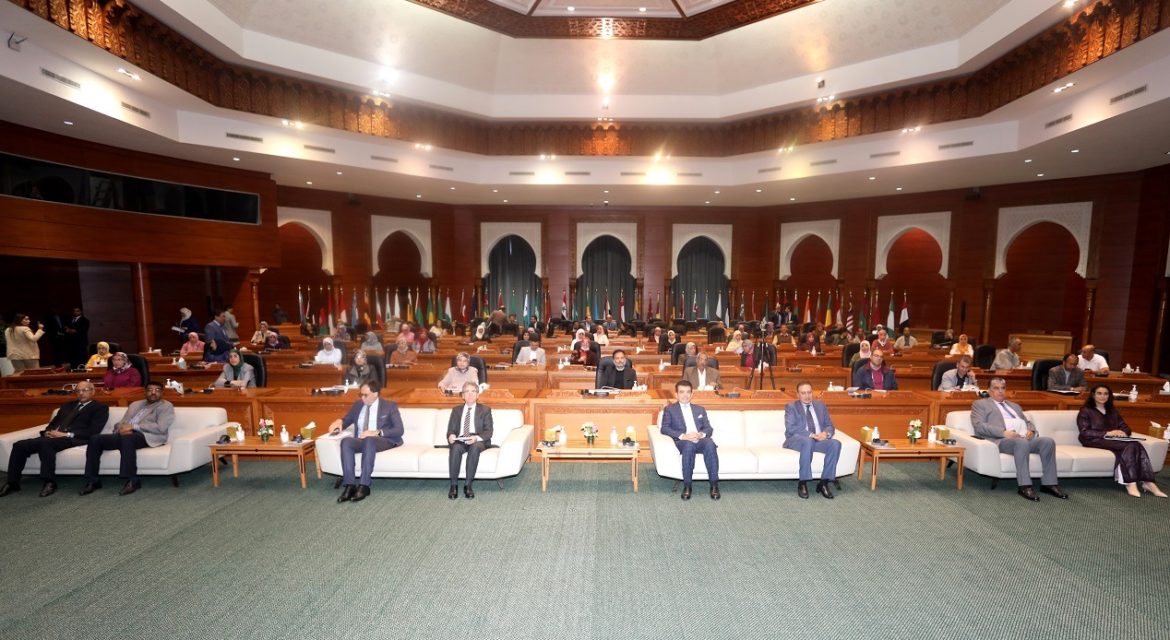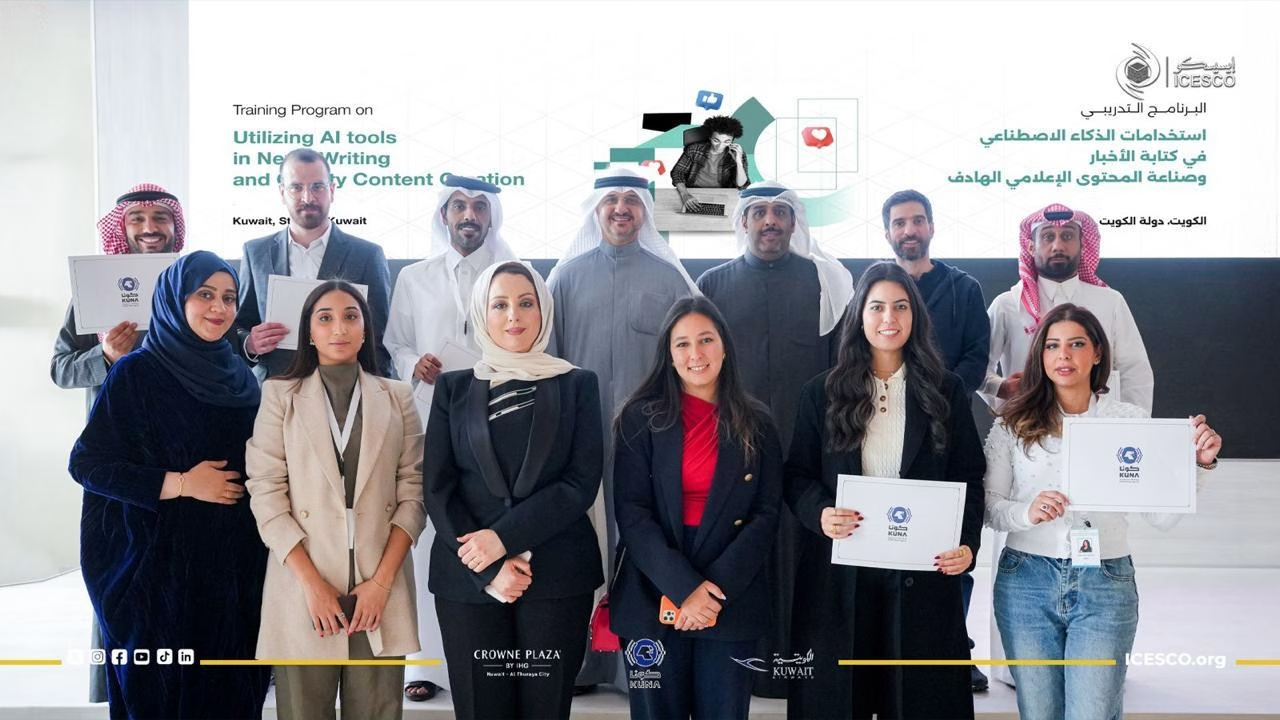
With Lecture on Literacy, “Cenacles of Gentle Exchanges” Kicks off at ICESCO headquarters

29 April 2022
The headquarters of the Islamic World Educational, Scientific and Cultural Organization (ICESCO) saw the launch of the lecture series, “Cenacles of Gentle Exchanges”, held by ICESCO in cooperation with the Ministry of Endowments and Islamic Affairs of the Kingdom of Morocco. The series kicked off with a lecture on the Literacy Programme that the Ministry has been implementing across Morocco since 2000, which benefited tens of thousands of people.
At the beginning of the lecture, held on Thursday 28 April 2022, a video on the Mosque-Based Literacy Program was screened, which highlighted the royal directives for the Ministry to launch the Program that His Majesty King Mohammed VI, may Allah assist him, gave during his address on the 47th Anniversary of the Revolution of the King and the People in 2000. The video also addressed the Programme’s significance, outcomes, achievements.

Following that, one of the Programme’s beneficiaries recited verses from the Holy Quran, before Dr. Omar Halli, Advisor to ICESCO Director-General for the Federation of the Universities of the Islamic World (FUIW), took the floor to reaffirm the significance of the lecture series, which is part of the Celebration of Rabat as Culture Capital in the Islamic World for 2022. He added that the series aims to highlight Rabat’s key civilizational and cultural aspects and the glorious and long-standing history of the Kingdom of Morocco in general.

In his address, Dr. Salim M. AlMalik, ICESCO Director-General (DG), commended the efforts of the Moroccan Ministry of Endowments and Islamic Affairs to support and guarantee women’s education, noting that schools in the Islamic civilization emerged from mosques.

The DG added that Cenacles of Gentle Exchanges are circles of science and thought concerned with cultural and religious issues, stating that the theme of the first lecture is very significant given the vital role women’s education plays in building and developing societies and achieving sustainable development.

After that, Ms. Fouzia Benabbad, Head of the Department of Mosque-based Literacy at the Moroccan Ministry of Endowments and Islamic Affairs, gave a lecture wherein she reviewed the history and stages of development of the Mosque-based Literacy Programme since its launch in 2000.
She highlighted the programme’s objectives, which include restoring the educational role of mosques, contributing to job creation for unemployed holders of academic degrees, developing a production chain linked to the programme, and training and qualifying a group specialized in adult literacy with a view to contributing to development.
She also pointed out that women constitute 90% of the programme’s beneficiaries, which highlights its importance in advancing women’s roles as agents to development, achieving socio-economic integration and raise awareness of the importance of equal opportunities.

Ms. Benabbad reviewed the programme’s manuals and textbooks, explaining that the programme is overseen by administrative and educational staff in the educational spaces in mosques, institutions and on satellite channels. She also highlighted the programme’s contents and key educational materials, which aim at achieving the basic, functional, informational, cultural, environmental and professional literacy.

Besides, Ms. Benabbad underlined that the Ministry of Endowments and Islamic Affairs launched and implemented the Handwritten Holy Qur’an Project by the programme’s beneficiary women in various mosques of Morocco. The Ministry taught every beneficiary how to write a word from the Qur’an, which has consequently been compiled and published following its revision by the scientific committee at the Ministry.

Afterwards, the floor was opened for questions and idea sharing, with which Ms. Benabbad interacted.

At the close of her lecture, Ms. Benabbad presented a copy of the said handwritten Holy Qur’an to ICESCO DG as a gift from the Ministry to the Organization.





